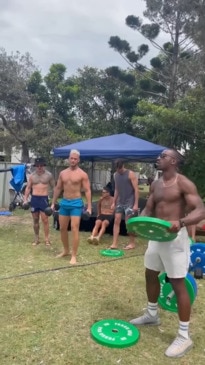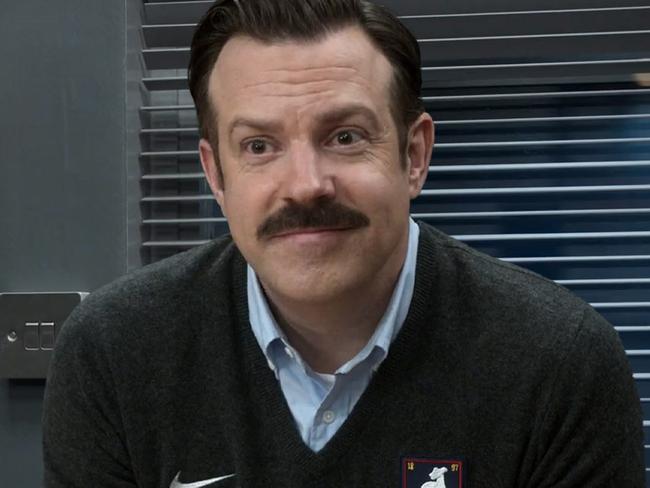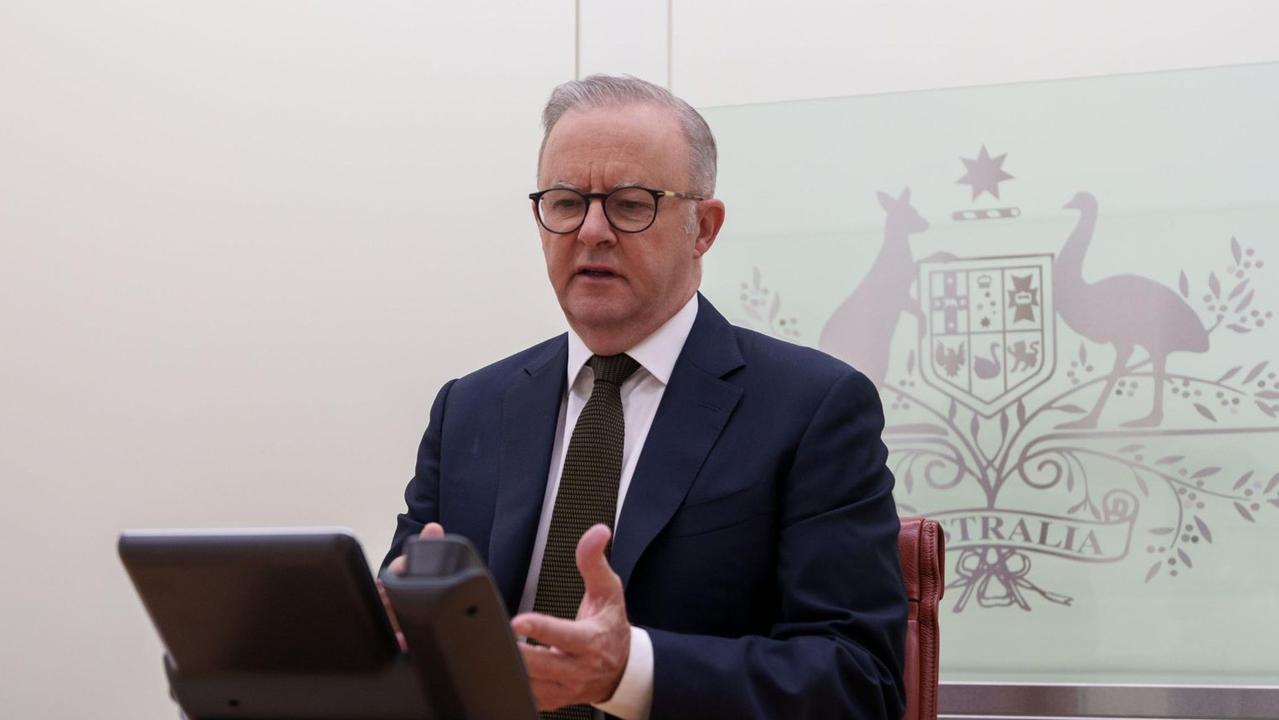Angela Mollard: Why it is more important than ever men called out the bro code
A glimpse at an all-male WhatsApp conversation left Angela Mollard shocked by its contents, but she believes more men are calling others out and breaking the prehistoric ‘bro code’ rules.

Opinion
Don't miss out on the headlines from Opinion. Followed categories will be added to My News.
Do you ever wonder how men talk to each other when women aren’t around? I do, which is why I was fascinated when a friend told me her husband had allowed her to read the WhatsApp conversation between his group of sporting mates.
She’s a worldly woman but she was shocked. There were a couple of obvious dickheads in the mix, but just as concerning as their foul objectifying comments about women were the larger contingent who weren’t calling them out. As we later discussed, if men in their 40s and 50s are too cowardly to confront disrespectful behaviour and attitudes, then what hope for younger men?
About now, I suspect many of you have a single thought: what the hell was he doing letting his wife read his messages? But, really, in 2023 is that the main point? If it is, you might want to check your defensiveness.
Rather, five years on from the #MeToo hashtag going viral, the main point is whether men now feel enlightened or threatened by the global reckoning and outpouring of stories that revealed what women have endured. It’s impossible to measure, and I may be calling it too early, but I’m seeing early shoots not just of understanding but of change.

As ever, it is not just observation but popular culture that reflects back to us an attitudinal shift – and there’s strong signs that the bro code, those bizarre unspoken rules that exist between men, is evolving.
Two television shows, particularly, have shone a spotlight on how important it is for men to be a change agent for other men.
You wouldn’t typically lump Binge’s FBoy Island and Apple’s Ted Lasso in the same category but both have artfully and humorously forced a reconsideration of what it means to be a man. While there are more penis motifs in the former and a greater penchant for wearing shirts in the latter, both engage the bro code as the springboard for a deeper examination of men’s behaviour.
First, the F-boys (no, it doesn’t stand for fabulous). At first glance this series, hosted by Abbie Chatfield, looks like more of the same inflated (lips, pecs, boobs) and conflated (drama, scandals, misunderstandings) nonsense we have come to expect from dating shows.
But this is so much better. Fresh, comedic, with cheeky skewering of the tropes that litter reality television, the concept doesn’t simply address what is bad behaviour but provides an arena for the men themselves to illuminate it.
As the three women work out who are players (aka f**k boys) and who are nice guys, it’s the men who finally refuse to be bystanders. When personal trainer Caleb makes (frankly, revolting) comments about one of the women – suggesting her ex-boyfriend cheated on her because of her unattractive genitalia (I’m putting this nicely) – a bloke called Sean calls him out. When a third man, Benny, goes off his nut because Sean has snitched, one of the girls asks him why he didn’t call Caleb out. “I didn’t have the balls,” he responds pathetically, in scenes so compelling you couldn’t script it.

One bloke calls out another contestant for dumping his girlfriend to take part in the show while others exhibit such dinosaur behaviour they drop themselves in it. Nick may be a “nice guy” but he deserves to be voted off for peddling the tired, sexist “bros before hoes”, while Corey is so lacking in self-awareness he thinks Ziara will be impressed when he tells her that the other men ask his permission to talk to her. She’s not. Women, in 2023, are not chattels.
If FBoy Island dismantles the bro code through its chest-beating alpha contestants, it’s the beta blokes in Ted Lasso who offer modern men an alternative version of male collegiality.
As its name suggests, the show centres on coach Ted, played by Jason Sudeikis, but this is not a Top Gun/James Bond-style narrative where the action hangs on a central hero but an ensemble piece where men tussle with themselves and others to find meaning and connection.
Through storylines that include panic attacks, revenge porn, infidelity and abusive fathering, the male characters are given opportunities to explore their feelings and communicate effectively. They embrace the power of therapy and a modern brotherhood where pow-wows between the “Diamond Dogs” allow them to share and solve their personal issues.
When club boss Rupert tries to persuade coach Nathan to cheat on his girlfriend, the latter walks away leaving the alpha bloke looking like a loser. It’s no surprise the show won a Peabody award for “offering the perfect counter to the enduring prevalence of toxic masculinity, both on screen and off”.
With a 2020 report by the Geena Davis’s Institute on Gender in Media recognising that representations of masculinity on screen have a “real-world” effect on the wellbeing and behaviour of boys, FBoy Island and Ted Lasso offer a much-needed alternative view.
As Davis’s report is titled: “If he can see it, will he be it?” You can only hope that the blokes in their Wha’sApp groups are watching.




